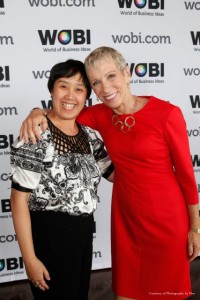I had the good fortune of attending a fascinating business conference organized by The Corporate Agent. Inside Edge 2013 (April 17-20) focused on how small businesses could effectively pitch and win business with big corporations. There is too much to summarize from the 4-day event but here were some of my favorite takeaways:
As entrepreneurs we aren’t reward on our efforts. Our results are our rewards. – Angelique Rewers, The Corporate Agent
Sometimes improving your results is not about what you need to do; it’s what you need to STOP doing – Angelique Rewers, The Corporate Agent
The only person who can stop, limit or restrict your success is you – Angelique Rewers, The Corporate Agent
Knowledge not acted on is useless trivia – Larry Broughton
Representation, Observation, Interaction = ROI of LinkedIn – JD Gershbein, Owlish Communications
Be flexible about how you do things, but be inflexible about why you do things – Scott Robley, Infusionsoft
Successful businesses quit survival marketing – Scott Robley, Infusionsoft
Branding is not a logo, tagline, name, design, message, marketing, social media, or website. Branding is a desired perception. – Re Perez, Branding For The People
You don’t own your brand; you shape it – Re Perez, Branding For The People
Great marketers don’t make stuff. They make meaning – Seth Godin
People buy people. Who you are is always more important than what you do – Eiji Morishita, Genius Marketing Academy
Make the pie bigger. Be the tide that lifts all boats – Eiji Morishita, Genius Marketing Academy
Don’t confuse business with charity. Serve clients who can afford you. Give to those who can’t – Eiji Morishita, Genius Marketing Academy
Content isn’t King. Insight is King – Angelique Rewers, The Corporate Agent
It was so nice getting away from the daily grind of the business to think more broadly, get inspired, and meet new people. An added bonus was staying in an ultra-luxurious resort (and yes, I made time for a spa treatment). There was the requisite swag bag, including a treat from one of my favorite boutiques, Pink Olive.
While I’m climbing my way back after four days away, it’s a worthwhile investment. What investment or conference do you have on tap to forward your business in 2013?
